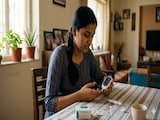- Researchers at IIT Roorkee developed Compound 3b to restore Meropenem's antibiotic power
- Compound 3b targets Klebsiella pneumoniae, a WHO-designated top-priority drug-resistant pathogen
- The compound blocks bacterial enzymes that destroy antibiotics and is safe for human cells
Researchers at the Indian Institute of Technology Roorkee have developed a new drug candidate that could restore the power of a critical antibiotic against one of the world's most dangerous superbugs. The discovery offers renewed hope in the escalating battle against antimicrobial resistance (AMR).
The research team, led by Prof Ranjana Pathania from the Department of Biosciences and Bioengineering, designed a novel molecule, Compound 3b, that works with a potent antibiotic Meropenem. This combination therapy has shown the ability to treat infections caused by Klebsiella pneumoniae, a pathogen designated as a top-priority threat by the World Health Organization (WHO) due to its resistance to multiple drugs.
"This breakthrough offers a promising solution to one of the world's most urgent health challenges," stated Prof. Pathania. "Our compound neutralises the resistance mechanism and shows strong therapeutic results in preclinical models."
Compound 3b is a type of drug that prevents bacteria from using enzymes to destroy antibiotics. The study, which included collaboration with researchers from UiT Tromso in Norway, found the new compound to be highly specific, safe for human cells, and effective at reducing bacterial infection in lung tests on animals.
The discovery of a drug like Compound 3b is a crucial step in a larger fight. Antibiotic resistance is a silent pandemic that makes once-treatable infections, from pneumonia and tuberculosis to common wound infections, lethal again. Without effective antibiotics, many modern medical procedures, including surgery, organ transplants, and cancer chemotherapy, become much more risky.
This research is vital because it addresses a fundamental problem of the bacteria evolving faster than the speed at which new drugs are being developed. By revitalising existing antibiotics, Compound 3b provides a powerful new tool without starting from scratch. It is a strategic victory against a microbial enemy that threatens to unravel decades of medical progress.
"This innovation reflects IIT Roorkee's commitment to developing impactful scientific solutions for global challenges. In the face of rising antibiotic resistance, such research provides critical hope for effective and accessible treatments," said IIT Roorkee director Prof KK Pant.
The findings have been published in the prestigious Journal of Medicinal Chemistry and is expected to be a significant step forward in safeguarding public health from drug-resistant superbugs.















